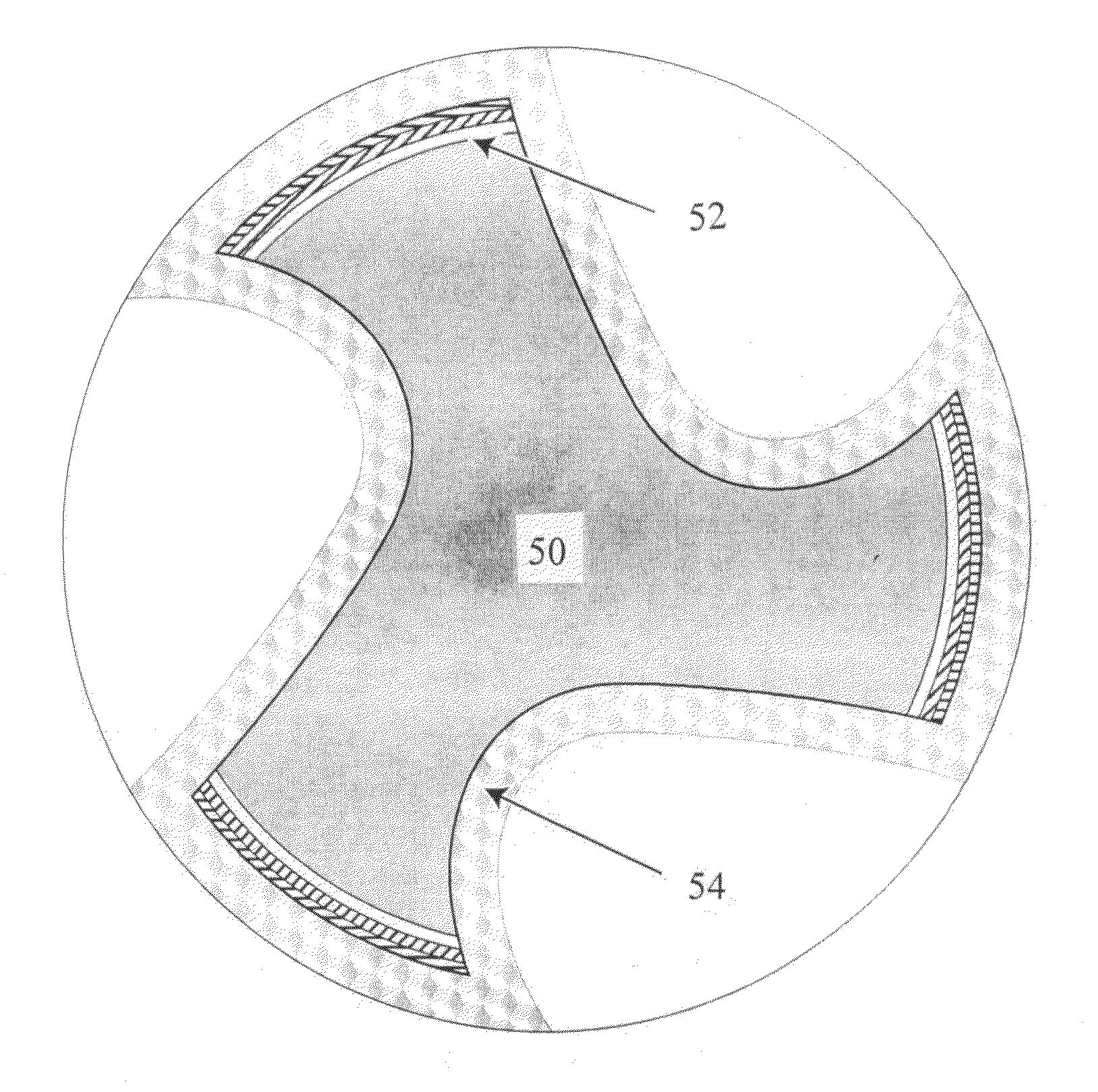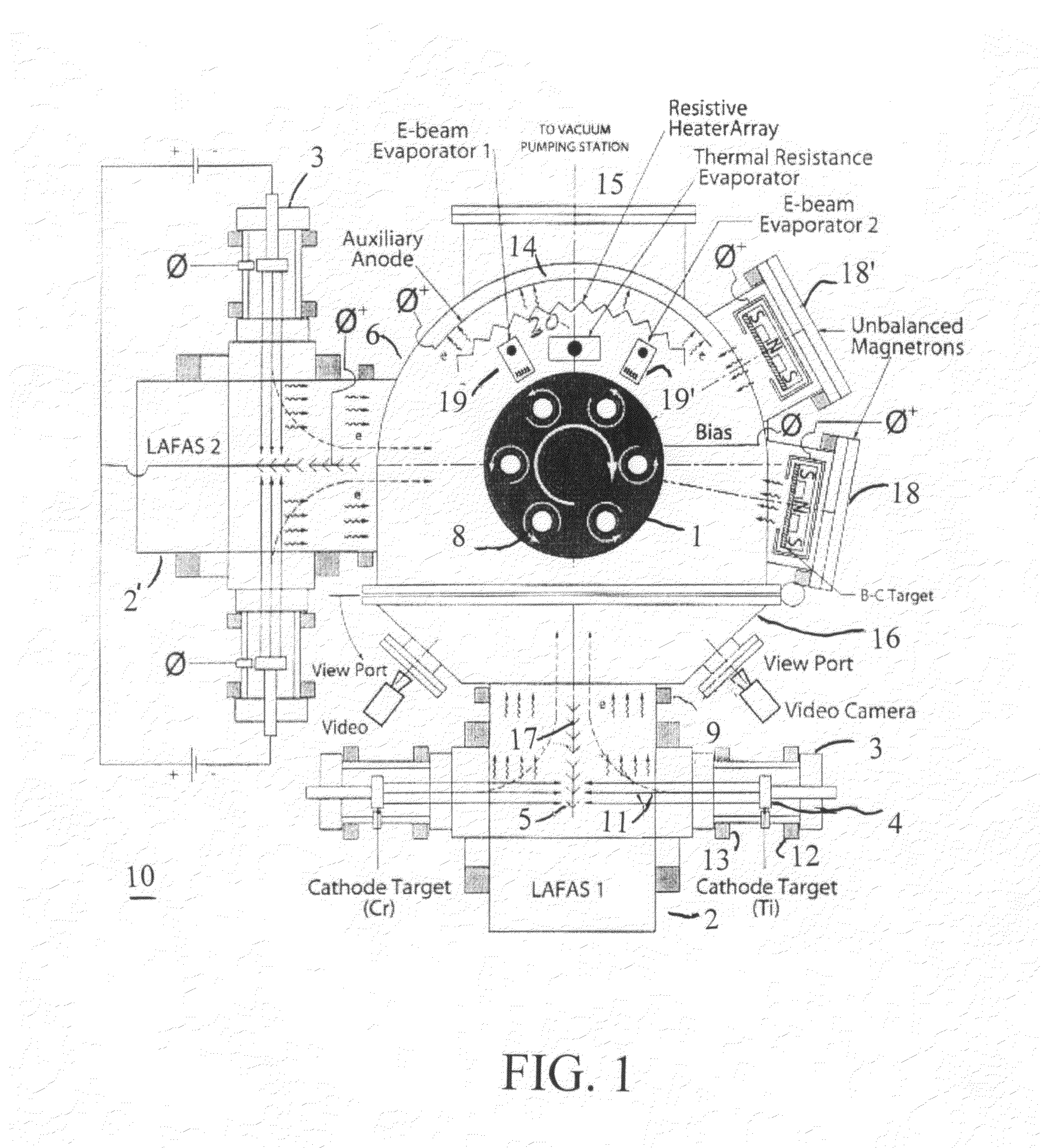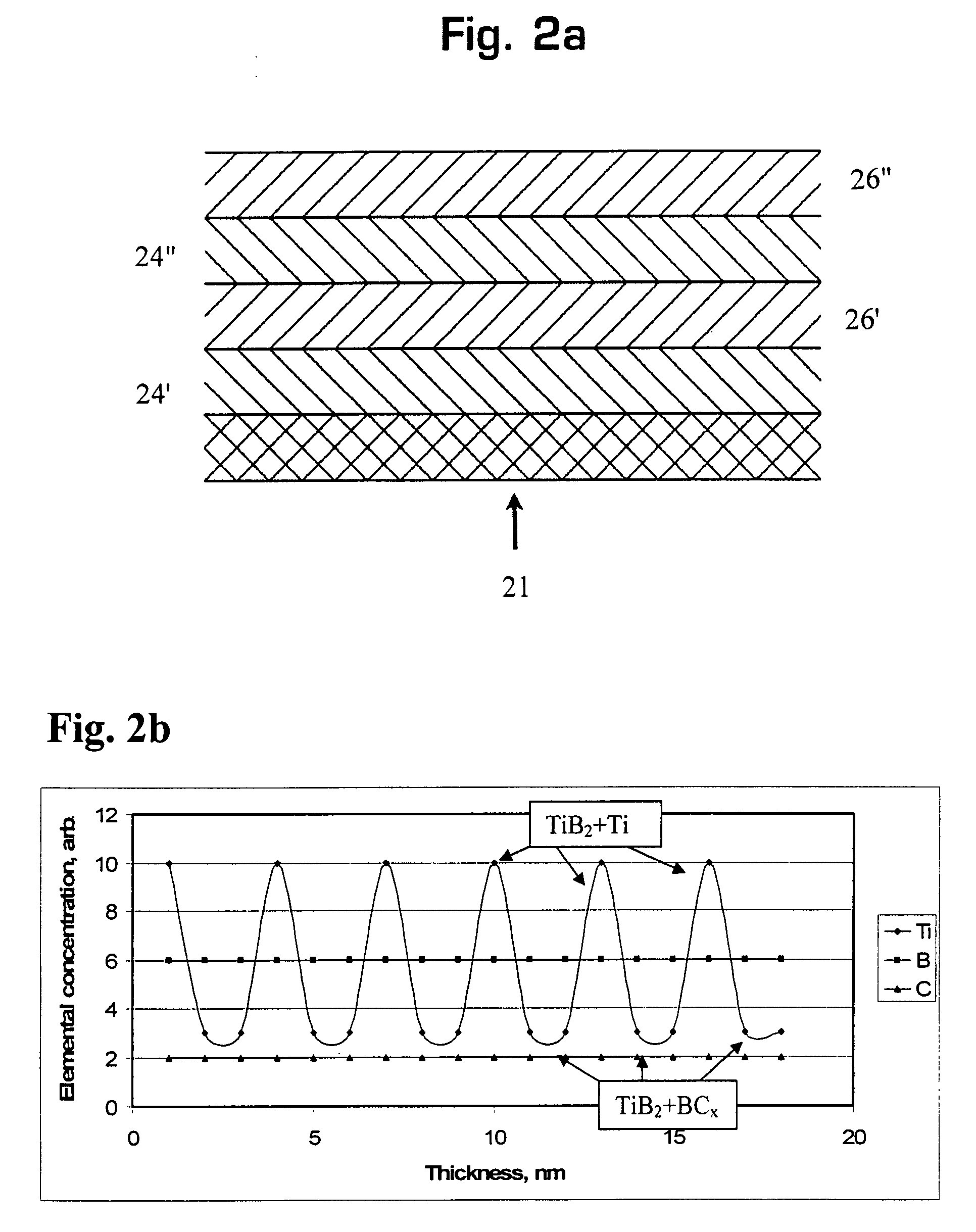Wear resistant vapor deposited coating, method of coating deposition and applications therefor
a technology of vapor deposited coating and wear resistance, which is applied in the direction of solid-state diffusion coating, teeth capping, natural mineral layered products, etc., can solve the problems of requiring low surface roughness of deposited layers, and reducing the wear resistance and durability of surgical instruments and dental tools. , to achieve the effect of reducing the stickiness and friction of rotary instruments, reducing torsion fatigu
- Summary
- Abstract
- Description
- Claims
- Application Information
AI Technical Summary
Benefits of technology
Problems solved by technology
Method used
Image
Examples
example 1
Stainless Steel Endofiles with Multilayer Gradient TiCr / TiCrN+TiCrCN+TiBC Coating
[0097]A set of endofiles made of 17-4 stainless steel were installed into the substrate holders positioned on the satellites of the rotating table of surface engineering system shown in FIG. 1. The following process parameters were used for the deposition of TiCrN / TiCr—TiCrCN bottom segment and transitional layer by LAFAD plasma source equipped with two (opposite) Ti and Cr targets. The arc currents were set on approximately 100 amperes for both Ti and Cr targets. The auxiliary arc discharge current was set on 150 amperes during argon ion cleaning stage and then reduced to 40 amperes during coating deposition stage. The substrate temperature did not exceed 300° C. An Advanced Energy Industry MDX-II power supply coupled with a Sparkle-V accessory unit was used as a bias power supply. The bias voltage was set at 250 volts during an ion cleaning stage followed by 1000 volts during 2 mins of a metal ion etc...
example 2
NiTi Endofiles with Anti-Friction Carbon Diamond-Like Coating
[0098]A set of endofiles made of NiTi nickel-titanium alloy were placed in the copper blocks and installed in the substrate holders, positioned on the satellites of the rotating table of surface engineering system shown in FIG. 1. The thermal transfer or “thermal sink” compound (“Thermal Compound” Part # 120-8, manufactured by Wakefield Engineering Inc. of MA) was placed in the hole to reduce the thermal contact resistance between the instrument and the copper block so that instruments can be provided with substantial thermal conduction cooling during vapour plasma deposition process.
[0099]The following process parameters were used for the deposition of DLC low friction carbon coating using two LAFAD plasma sources, one (for bondcoating layer) equipped with two Ti targets and another one equipped with two graphite targets. The ion cleaning step was performed in argon ionized in auxiliary arc discharge, created between prim...
example 3
Endodontic Files Made of 17-4 Stainless Steel with Two Segment Cermet-DLC Coating
[0101]A set of blank endofiles made of 17-4 stainless steel is cleaned by vibratory tumbling followed by ultrasonic cleaning dried and then loaded in the surface engineering system shown in FIG. 1. The surface finish of the blank endofile after cleaning is better than Rms—>25 GPa. This step forms a cutting flute with a metallic underside and a ceramic metal outer layer or top side. After that the instruments are subjected to chemical-mechanical vibratory tumbling which creates a fine surface finish on the uncoated side of the flute and does not affect the outer side of the flute and the very tip of the cutting edge which are much harder than vibratory tumbling media. After that the substrate instruments are ultrasonically cleaned and placed in the copper blocks positioned on the satellites of the rotating table of surface engineering system shown in FIG. 1. The thermal transfer or “thermal sink” compoun...
PUM
| Property | Measurement | Unit |
|---|---|---|
| toughness | aaaaa | aaaaa |
| compressive stress | aaaaa | aaaaa |
| thickness | aaaaa | aaaaa |
Abstract
Description
Claims
Application Information
 Login to View More
Login to View More - R&D
- Intellectual Property
- Life Sciences
- Materials
- Tech Scout
- Unparalleled Data Quality
- Higher Quality Content
- 60% Fewer Hallucinations
Browse by: Latest US Patents, China's latest patents, Technical Efficacy Thesaurus, Application Domain, Technology Topic, Popular Technical Reports.
© 2025 PatSnap. All rights reserved.Legal|Privacy policy|Modern Slavery Act Transparency Statement|Sitemap|About US| Contact US: help@patsnap.com



